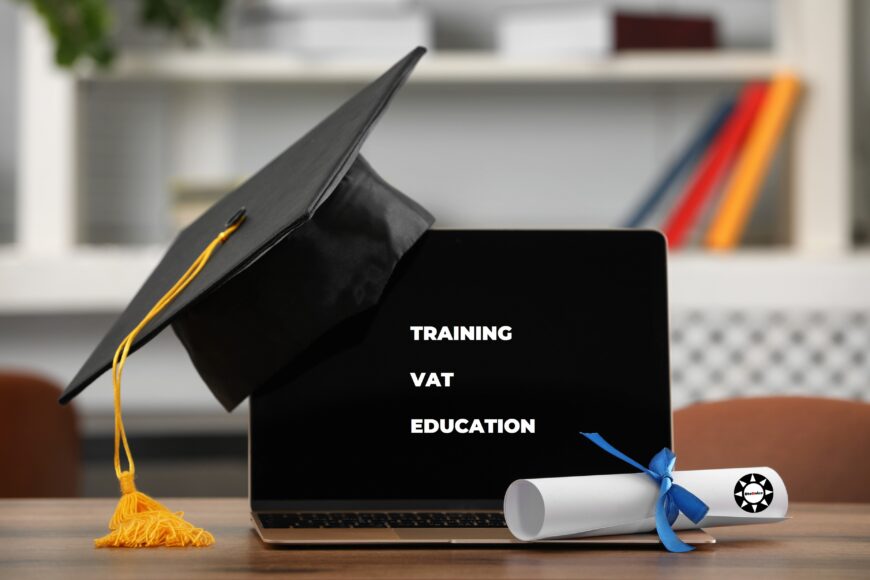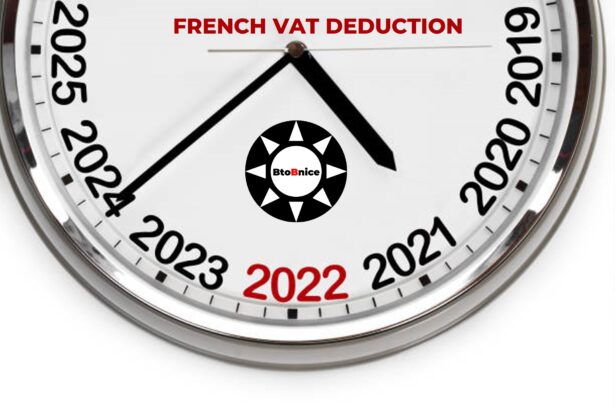VAT on training costs : upcoming changes in January 2025

The European Directive 2006/112/EC provides the VAT exemption on education and training costs, under the conditions set by the Member States.
This exemption is applied within the EU and in the United Kingdom, in accordance with the national legislation.
In France, the following supplies are exempt from VAT:
- School, university, technical, professional and agricultural education provided by public and private institutions, in person and remotely (with certain limitations);
- Services and deliveries of goods closely related to education;
- Private courses or lessons provided by natural persons, under certain conditions;
- Continuous development training provided by legal entities under public and private law.
Training services that do not meet the above criteria are subject to VAT, according to the place of supply rules.
VAT on continuous development training
In France, the organisations providing continuous development training must hold a certificate issued by the competent Public administration (DREETS) to benefit from the optional VAT exemption. This condition was recently confirmed by the Administrative Court of Appeal of Nancy (CAA Nancy, June 6, 2024, No. 21NC01966) and by the French Council of State (CE, March 18, 2024, No. 475627) as being compatible with the EU law.
It’s the contrary in Germany which is preparing to abolish the condition of certification issued by the national authorities for the VAT exemption of educational institutions and private teachers starting from January 1, 2025, in order to align with the EU rules.
VAT on virtual training
The European VAT reform provides new taxation rules for virtual trainings which will be taxable at the place of residence of the participants starting from January 2025. This rule will also apply to other virtual events, such as sporting, cultural, etc.
According to the European VAT Directive and its transposal into the national law, the admission fees to virtual trainings provided by French and foreign companies will be taxable in the country of establishment of the professional clients (B2B), with the possibility of reverse-charge by the recipient, or in the country of residence of the private clients (B2C), with the application of the local VAT rate. Thus, for a single training course, the organisers may become liable for VAT in several member states. They will therefore have to collect the VAT from their customers, based on the annual thresholds, and reverse it to foreign tax authorities via periodic VAT returns in the concerned countries or via the OSS counter in their country of establishment, after a prior registration.
Companies must anticipate this change, by checking in advance the training format, the status of the participants, their place of residence, as well as the threshold of annual electronic services and distance sales, which is limited to €10,000 within the EU.
VAT on direct training
In-class training remains taxable at the location of the event, regardless of the status and of the place of residence of the participants. Currently requiring a VAT registration in the country of the event, the admission fees to direct training are likely to benefit soon from the simplifications offered by the OSS counter, in frame of the European VAT reform (VIDA).
British VAT on private schools
Debated since several months and initially expected in September 2025, the taxation of British private schools and related services was announced by Finance Minister Rachel Reeves on 29/07/2024. The application of the standard VAT rate of 20% should bring in £1.6 billion per year to finance the salaries of additional teachers in the public sector. Following this announcement, the UK tax authority HMRC has published comments for private schools: Revenue and Customs Brief 8 (2024)
The 20% VAT rate will apply from 29/07/2024 to prepayments for private education provided from January 2025. Payments already made before 29/07/2027 will not be affected.
These changes will not impact pupils with the most acute special educational needs which can only be met in private schools.
The modalities of VAT registration of private schools will be commented on a later stage.
In addition, the UK government will remove private schools’ eligibility for charitable rates relief under business rates in England.
A public consultation on the VAT policy changes is open for 7 weeks until September 15, 2024. The reform will be legislated for in the Finance Bill, which will be introduced following the Budget and will take effect from 1 January 2025.





